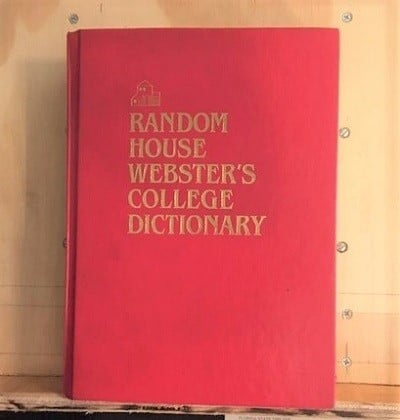English is a perplexing language. Writers praise its wealth of words and flexibility, but I’m not impressed, though I grew up with it. My home language is a conglomeration of many languages, as any advanced language must be. But I have never liked the similarities of spelling, and the annoyance of similar pronunciation.
As a quick example: bark, bow, desert, rose, row, and tear. And then there’s to, too, and two. There are four names for such words, from Homographs to Polysemes, as well as another whole category called Capitonyms (Polish, polish). It’s all complicated, and therefore confusing.
And I am annoyed by the people who spent thousands of hours coding on Word Document for autocorrect. Every time I type “inbetween,” the spell check wants to change it either to “in between” or “in-between.” Why? Why can’t that be a proper word? I finally decided to ignore it. It’s “inbetween” to me. As far as that goes, why isn’t “everytime” acceptable?
Normally I give the internet only three opportunities to answer my question, but this time I gave it nine, six on my phone, and three on my computer. Apparently there is no name for combining two whole words into one. “Isn’t” and “won’t” are called contractions, but “anyone” and “everyplace” have no special moniker. The typical etymology of such words defines them according to their use, pronoun, adjective, adverb. Therefore I will call them combinations.
What really torques my temporomandibular joint is the word “nowhere.” That’s the only combination I completely disagree with because I always see it as “now here,” and so I always try to remember to spell it “no where” when I’m writing by hand and keyboard. After my frustrating excursion into the abbreviated information of the internet, I finally pulled from my bookshelf and dusted off my old hardback copy of Random House Webster’s College Dictionary, which was full of sticky-note bookmarks from long ago. I removed them, and looked up “nowhere”. According to Webster, the word is over a thousand years old, from Middle English, which came from Old English nāhwǣr and nōhwǣr. I’m certain the Random/Webster version of the Oxford English Dictionary doesn’t include all the history of words, but it sounds legitimate; though I’m sure originally those were separate words: nāh wǣr and nōh wǣr. No matter how long ago it happened, it’s still a combination.
Since combinations are clearly arbitrary and established as traditions by the written word, I have some of my own, not nearly as confusing as “nowhere.” Besides “inbetween” and “everytime” I suggest: rightside, leftside, notime, whyare, whyis, whendoes, everynow, andthen, and whathehellyoutalkinabout. Well, maybenot thatone.
I notice on my screen that there are (thereare?) squiggly red lines under twenty-three (twentythree?) words for spelling—now twenty-four—and three squiggly blue lines for punctuation, though one is for “no where”—okay, now there are four—but shouldn’t those be squiggly red? I don’t know. Should there be other colors? Green squiggly lines for words that confuse Word? I used to use a ribbon typewriter, then I bought a single-use ribbon electric, and then I had an Atari computer with a green screen and a dot-matrix, and by then I had stopped looking up words in the dictionary and instead used a device my brother sent me, not much bigger than a small desktop calculator, that allowed me to type in part of a word and find its proper spelling and definitions. I have to say that now, here in the future, writing is much easier, though I might still complain.

